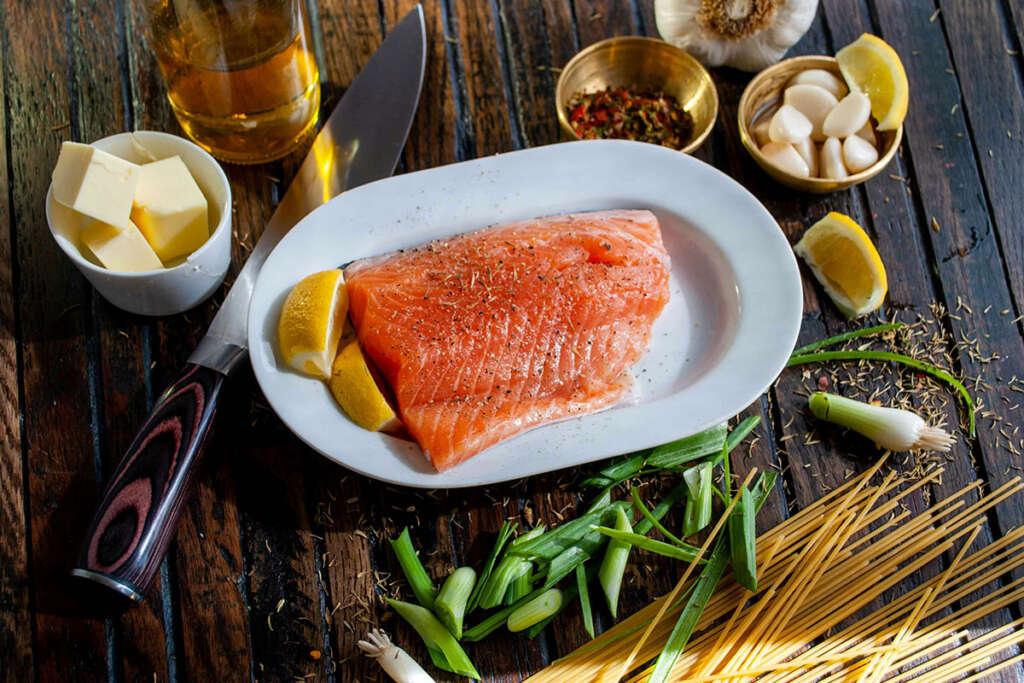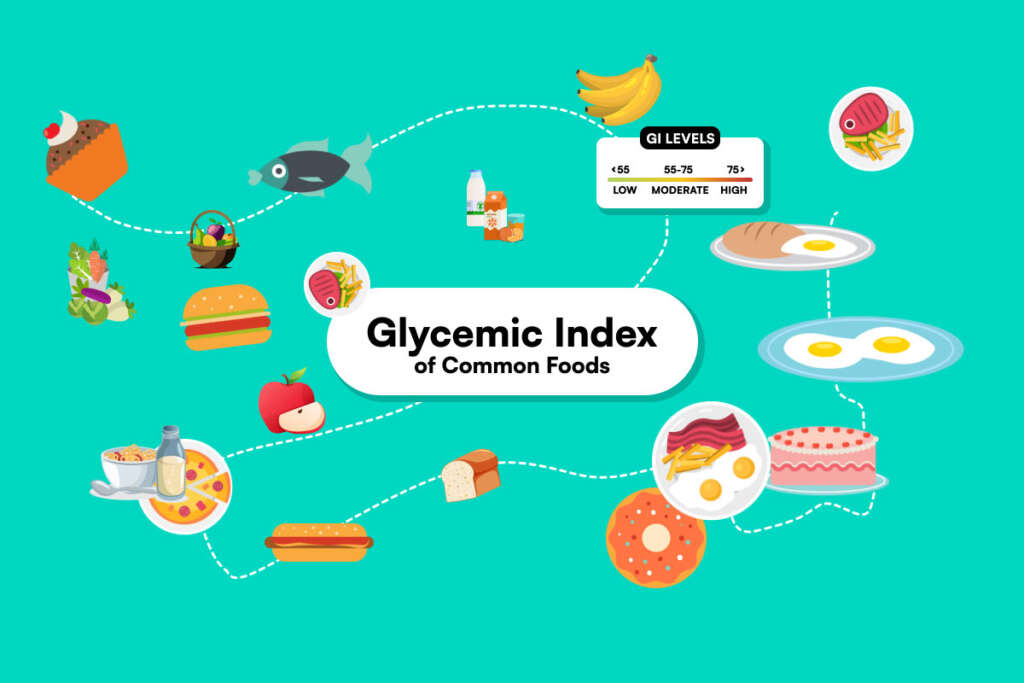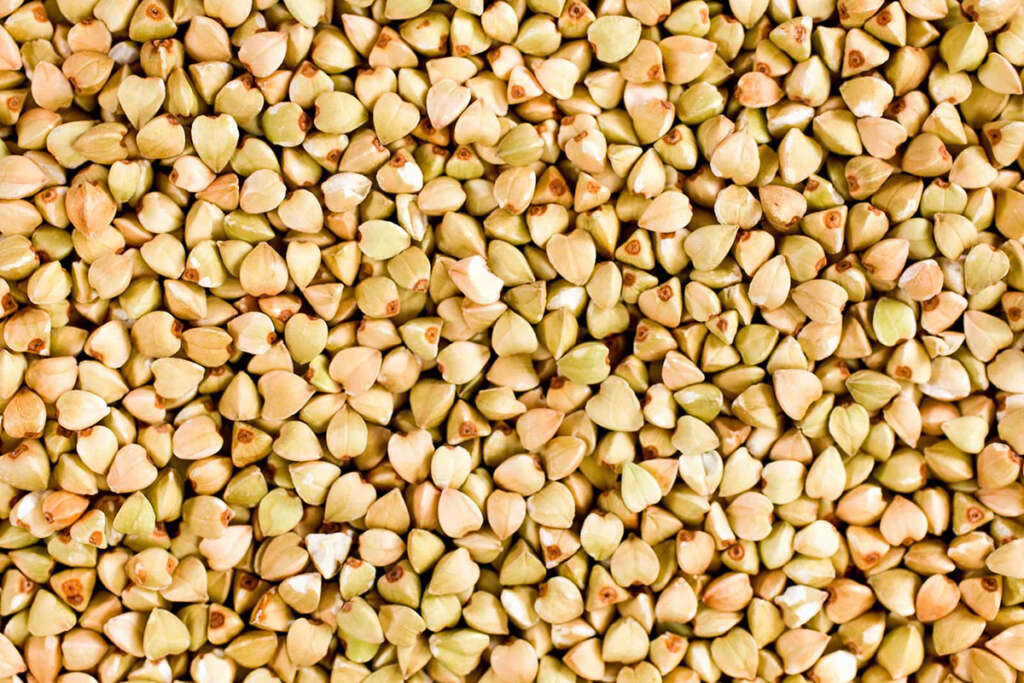Healthy seafood is the second episode in the series on whole foods that are good for your health in many ways, making them a better choice than most processed foods. In this episode we will present 5 healthy seafood to you. Salmon, sardines, shrimp, trout and tuna are great sources of protein, vitamins and minerals. Shrimp and tuna are not exactly rich in omega 3 but the other three are quite high in it.
There are two major concerns with seafood, however. One is their toxic chemical levels and the other one is overfishing. Keep in mind these when thinking about eating seafood.
Salmon
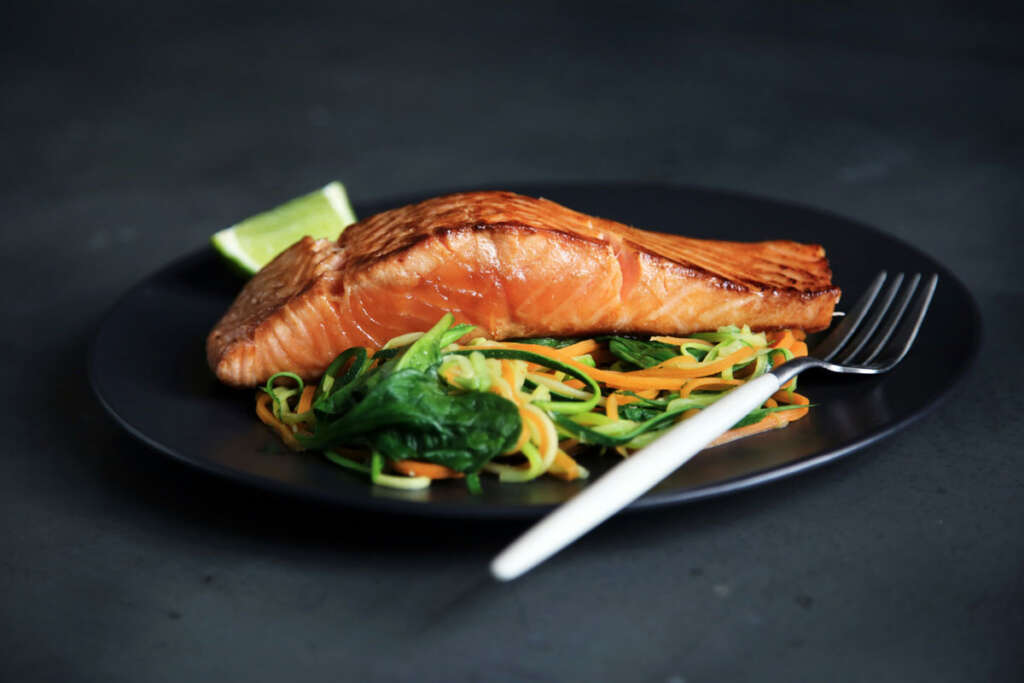
| Nutritional facts (per 100g cooked) | |
| Calories | 206 kcal |
| Protein | 22.1g |
| Fat | 12g |
| Carbohydrates | 0g |
| Minerals & vitamins | Potassium, selenium, vitamin B3, B6, B12, D |
Salmon is highly recommended to consume on a weekly basis. Too bad it’s very expensive. But aside from the price, It’s one of the best sources of long-chain omega-3 fatty acids EPA and DHA, which are great for heart health. They help reduce inflammation, lower blood pressure, decrease triglyceride levels, and reduce the risk of heart disease. It’s also full of proteins and B vitamins. Did you know that B vitamins can help repair your DNA? Salmon is packed with many good things that – besides the above mentioned – can help control your blood pressure, prevent excess fluid retention, maintain thyroid, brain and eye health, and its antioxidants help protect cells from damage. Salmon’s pink color is caused by one of its antioxidants called astaxanthin.
Sardines
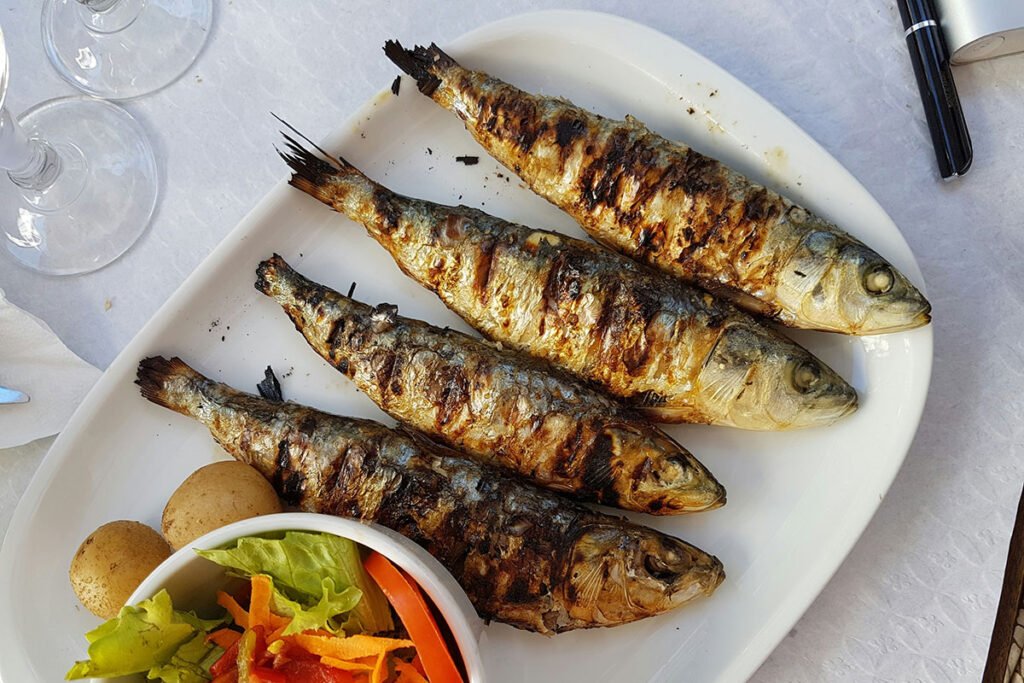
| Nutritional facts (per 100g cooked) | |
| Calories | 208 kcal |
| Protein | 25g |
| Fat | 11g |
| Carbohydrates | 0g |
| Minerals & vitamins | Calcium, iron, vitamin D and B12 |
Sardines, too, are rich in omega-3, protein, vitamins, minerals and antioxidants. Sardines are good for your bone health due to their high levels of calcium and vitamin D. They lower LDL (bad) cholesterol levels, improve the immune function with selenium, and eating them is good for your skin.
Shrimp
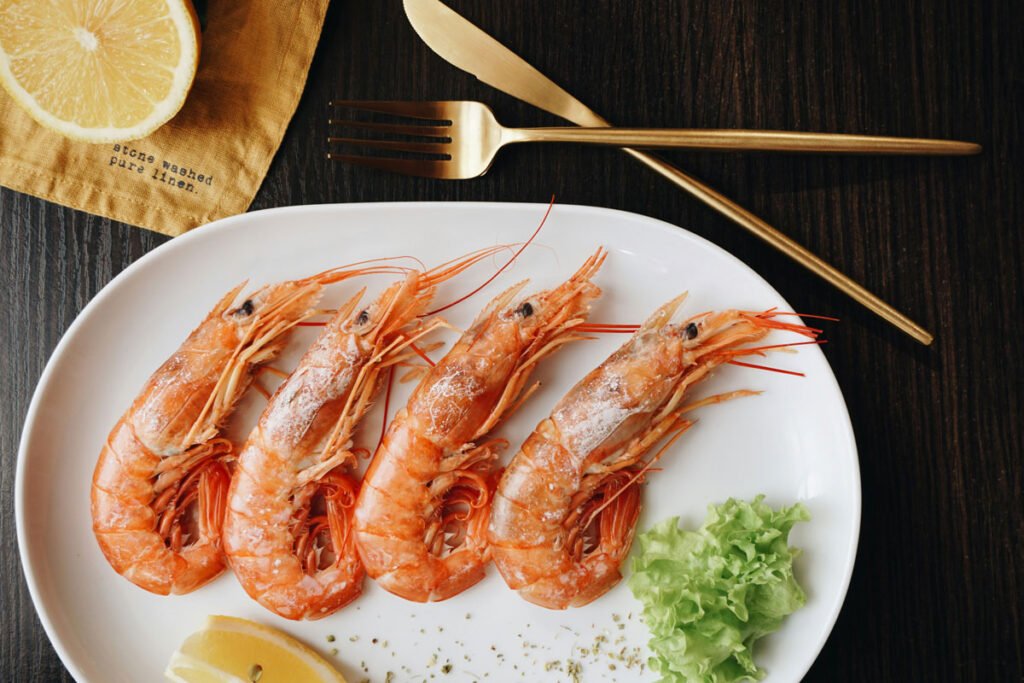
| Nutritional facts (per 100g cooked) | |
| Calories | 119 kcal |
| Protein | 23g |
| Fat | 1.8g |
| Carbohydrates | 1.2g |
| Minerals & vitamins | Iodine, selenium, vitamin B12 |
Shrimps are low in calories and high in protein, iodine (which is great for thyroid function) and selenium. Although shrimps are not as high in omega-3 as salmon or sardines, they still have some. Also great for the bones, skin and hair.
Trout

| Nutritional facts (per 100g cooked) | |
| Calories | 119 kcal |
| Protein | 20g |
| Fat | 3.5g |
| Carbohydrates | 0g |
| Minerals & vitamins | Selenium, vitamin B6, B12, D |
Trout is one of the most delicious fresh water fishes and it’s related to salmon, with similar health benefits. As with all fish, it’s important to consider the source of trout to ensure it’s sustainable and to mitigate exposure to contaminants. Freshwater trout, especially when coming from clean, well-managed farms, you can not only get a healthy meal but also one that’s environmentally friendly.
Tuna
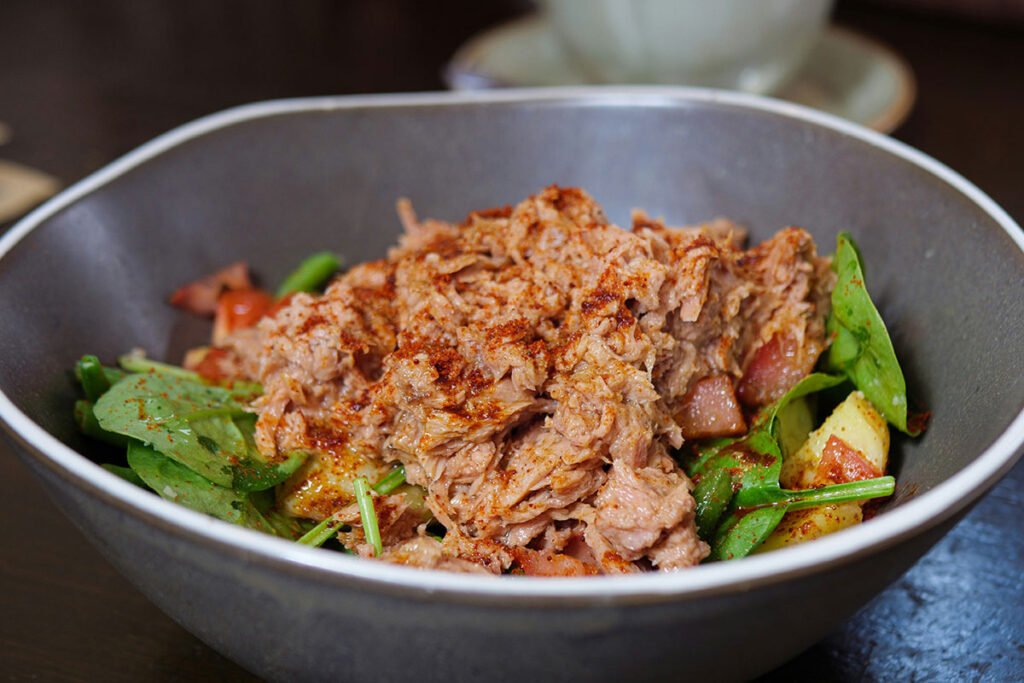
| Nutritional facts (per 100g cooked) | |
| Calories | 132 kcal |
| Protein | 28g |
| Fat | 1.3g |
| Carbohydrates | 0g |
| Minerals & vitamins | Selenium, Vitamin B3, B12, D |
Tuna has also a ton of benefits for your health but be careful what kind of tuna you buy: certain types of tuna, like albacore and bluefin, tend to have higher mercury content. Light canned tuna is generally safe.
Wrapping up
Whole foods are minimally processed or not processed foods at all. They are healthy, full of nutrients, fiber, antioxidants, and if you add them to your diet, you can enjoy many health benefits. Your immune system gets stronger, your digestion, heart health, blood sugar and cholesterol levels get better, and they reduce the risk of diabetes, obesity, and other diseases. Avoid processed and choose healthy whole foods.
